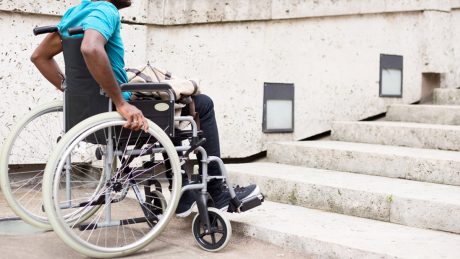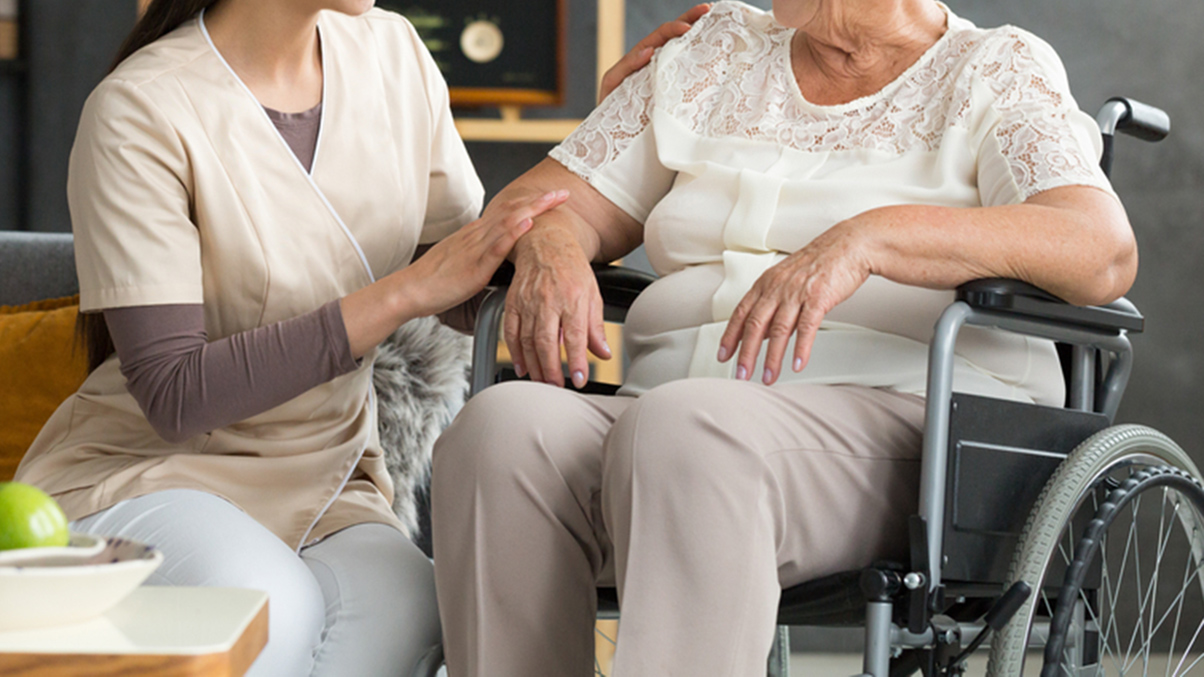Discrimination based on disability is still apparent and active in 2020. While the Equality Act 2010 stipulates that a person should not be unfairly disadvantaged by reason of disability, discrimination is still rife. It is a big issue that many of our injury clients face on a daily basis. This article identifies areas where disabled people face discrimination, both before and as a result of the Covid-19 pandemic.
Pre-Covid
Travel
On average, journeys for disabled people last 49% longer than for those without a disability as most transport systems were not designed with disabilities in mind. The majority of train or underground stations are not wheelchair friendly, and people are frequently left stranded when promised ramps don’t appear. In fact, 60% of the London Underground is still inaccessible to wheelchair users. This inaccessibility creates further barriers to employment as disabled people must factor in whether the commute is even possible for them when considering a job.
Employment
According to the Trades Union Congress (TUC), disabled workers are paid 15% less than other employees, a gap of around £3,000 a year. This equates to disabled workers earning on average £1.65 an hour less than non-disabled workers. People with disabilities are also less likely to be in work as they face barriers to accessing employment. Around half of disabled people are in work, compared to more than four-fifths of non-disabled people, a gap of almost 30%.
Furthermore, an analysis of cases being brought to employment tribunals published by the Financial Times has shown a surge in cases of disability discrimination.
Following the introduction of tribunal fees in July 2013, the number of disability discrimination cases dropped considerably. Since the fees were declared unlawful and discriminatory by the Supreme Court in July 2017, the volume of disability discrimination cases is now at an all-time high. In the most recent data released by the Ministry of Justice, over 2,000 disability discrimination cases were brought each quarter in 2019.
Despite being the government department that is responsible for supporting people with disabilities into employment, the Department for Work and Pensions (DWP) has lost more employment tribunal disability discrimination claims than any other employer in Britain since 2016. As a result, the DWP has had to pay out almost £1m. The lost cases amounted to 13% of the total cases brought to the tribunal by DWP employees, compared with an average of 3% among employers as a whole.
Since the Covid-19 pandemic
The current Covid-19 pandemic has further highlighted the fact that people with disabilities are still actively discriminated against and are not offered the same opportunities as those without disabilities. Disabled people are 42% more likely to have poor health and are, therefore, extremely vulnerable to the virus.
Travel
For disabled people, the reality of post-pandemic travel will add further frustration to what was already a stressful experience, as highlighted above.
Talk of reduced services and restricted passenger numbers going forward is a cause of concern, especially for those who already find travel difficult.
While we cannot eradicate the risk of virus transmission on public transport, policymakers and transport providers must ensure new measures don’t further exclude disabled people. All temporary or permanent restructuring plans must consider the one in five people who are disabled.
Employment
The Equality and Human Rights Commission (EHRC) has warned that employers may face a raft of discrimination claims if they unfairly treat disabled members of staff during, or as a result of, the coronavirus crisis.
The EHRC has issued new guides, which give details of organisations’ duties to make reasonable adjustments for disabled employees. The guides also set out their legal responsibilities to help them make correct and lawful decisions around dismissing and furloughing disabled staff in the current climate.
Employers also have a duty to ensure that commutes and working practices are safe for all staff. This means allowing flexitime hours to allow disabled people to travel when it is safest for them to do so and negating the need for commuting at all by maintaining the option to continue working from home.
Lockdown easing
Many of the post-lockdown plans are being introduced without clear consideration of disabled people, particularly when it comes to space allowances for people with mobility difficulties.
Earlier this month, government ministers introduced a new bill in parliament temporarily changing licensing laws for businesses in England. As a result, licensed outlets will be able to convert their car parks and terraces into temporary beer gardens, and pubs will be able to set up tables and chairs on pavements to serve their customers. These temporary outdoor areas run the risk of affecting the movement of disabled people such as wheelchair users and people who are visually impaired, by compromising disabled parking spaces, walkways and other routes for disabled people.
While it is important to get the economy moving again after lockdown, it must not negatively affect the wellbeing of disabled people. Adding more tables and chairs for outdoor eating could put disabled people at risk if they are forced out into the road, or required to break social distancing rules to get past.
Disability rights campaigners are calling on pub and restaurant owners to “consider everyone in our society” and refrain from compromising the mobility of disabled people.
US Open tennis tournament
Many sporting events have been cancelled or postponed in recent months, but the US Open tennis tournament is scheduled to go ahead in New York from 31 August to 13 September. However, organisers decided to omit wheelchair tennis competitions this year in light of the threat of Covid-19.
The decision, which was made without consulting the athletes involved, left the athletic community rightly upset and angered at the clear discrimination towards the tournament’s wheelchair athletes. Many voiced their thoughts that the organisers do not consider disabled athletes to be as important, valued or respected as the able-bodied players.
The International Paralympic Committee urged the US Tennis Association to reconsider. Following a public backlash, they quickly reversed their decision, and the wheelchair events will be held at the grand slam.
Going forward
It is clear to see that, unfortunately, disabled people are still actively discriminated against in 2020 and face struggles that people without disabilities may not even be aware of. These issues must be highlighted so that changes can be made as soon as possible.
Over the past few months, people have come to know how it feels for their safety to rely on the actions of those around them. We can’t go back to “normal” post-pandemic, and nor should we aim to. Instead, we must travel forward and try harder to ensure disabled people are presented with the same opportunities as others.
This article was written by our Senior Paralegal Grace Horvath-Franco.
The Legal Service – We are here to help
The Legal Service, delivered by our pro bono team, provides patients with advice without obligation, for however long it takes to resolve the issue. Our support is available regardless of the circumstances of an accident and regardless of whether a patient has a personal injury claim.
In these difficult times, the concerns of our pro bono clients are likely to be more stark than those in more fortunate circumstances. The Legal Service will be available throughout the crisis to help in any way we can to ease the burden on our clients.
To get advice from The Legal Service, please contact Kara Smith by phone on 020 7822 8000 or by email at ksmith@stewartslaw.com.
You can find further information regarding our injury expertise, experience and team on our Personal Injury pages.
Covid-19 is impacting individuals and companies around the world in an unprecedented way. We have collected insights here to help you navigate the key legal issues you may be facing at this time.
Subscribe – In order to receive our news straight to your inbox, subscribe here. Our newsletters are sent no more than once a month.







